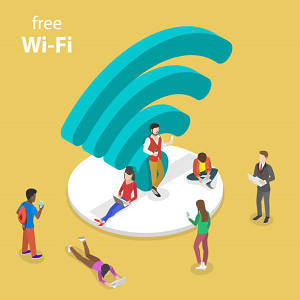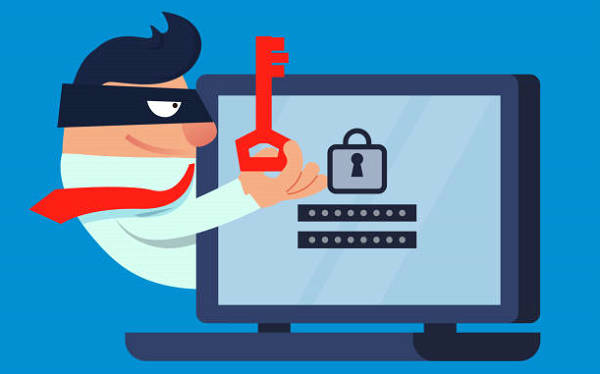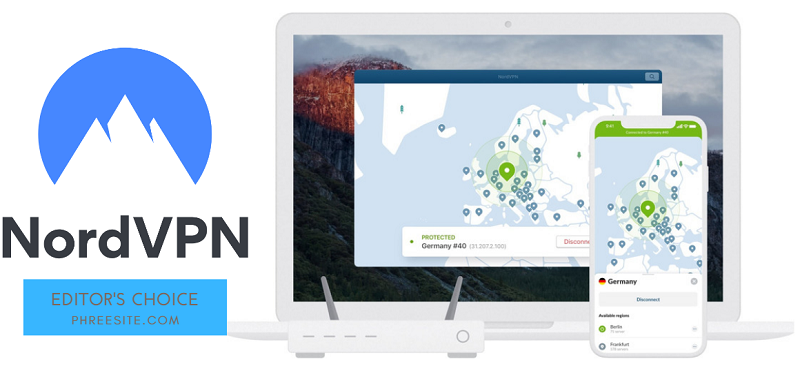This creates a massive amount of data that many parties want. This includes your ISP (Internet Service Provider), advertisers, big companies like Facebook and Google, hackers, and more who all want access. To protect your security and privacy online, there’s no better tool than a VPN.
What Is a VPN?
A VPN stands for a virtual private network. VPNs create an encrypted channel between you and your target online destination. They route your internet traffic through a secure tunnel that prevents prying eyes from gaining access to your data. It goes further by anonymizing your IP address to conceal your identity and location. VPNs are thus not only highly secure but also have a wide array of other benefits as well. Read more: Top 10 Free VPN Sites that are actually worth to try!
1. Use Public WiFi Safely
Free public WiFi is sure tempting. It’s a great way to get high-speed internet access so you can jump on the web to browse social media, watch YouTube videos, and do all your other favorite things without the need to use your mobile data. Unfortunately, using public WiFi can also be risky. This type of internet usage is unencrypted meaning nearby hackers could gain access to your computer. Likewise, since you are now connected to a public network, it’s possible for malware on other computers to get onto yours. Finally, some free WiFi networks are simply phishing scams looking to gain access to your data! Even if the public network is secure, you don’t really know who’s monitoring the traffic. With a VPN, you stay safe by keeping your connection completely private.
Best VPN for iPhone: Encrypt Public Wi-Fi wireless Network! The Best Android VPN Apps: Encrypt Public Wi-Fi Network!
2. Get Around Geo-Blocks
Anybody traveling has noticed that their favorite Netflix, Hulu, and other content may not be accessible in other countries. There is a wide variety of reasons countries may use geo-blocks, which unfortunately means you won’t get to watch your favorite shows. One of the key benefits of a VPN is that you can choose a server location in different countries from where you physically are. This means you can always access US content on locked platforms like Prime and HBO Go as well as great options in other countries like BBC iPlayer for the UK and more. You may be like, 10 Best Primewire Alternatives To Watch Movies Online For Free.
3. Overcome Government Censorship and Data Tracking
Whether you are living or traveling in a restrictive state, censorship can be a serious problem. These governments don’t only track user data but may use it to prosecute individuals. They may even block key news websites and major social media networks like Whatsapp, Facebook, and Instagram. When you use a VPN, you can access whatever website you want through a secure, protected channel.
4. Save Money Shopping Online
Online stores will sell the same products for different prices based on the location of your IP address. This sweeps across the board from hotels and flights, to software and games, subscription services, and more. For example, Apple Music costs $9.99 in the US and just $1.23 in India. It takes a little time, but customers can find much better deals by switching VPN servers across different countries to find the best prices. You may save hundreds and sometimes thousands of dollars. However, be careful and always read the Terms & Conditions to be sure that the services purchased in virtually different locations function in yours.
5. Work Around ISP Throttling
ISP or bandwidth throttling is an increasingly common practice. For a variety of reasons, ISPs limit bandwidth speed on gaming and other sites. They may do this even if you have “unlimited” bandwidth packages. Do not believe that? Watch this video that demonstrates how your ISP is throttling your internet connection. When you toggle on a VPN, it disguises where your traffic is going so you won’t get slowed down on gaming and other high bandwidth sites.
6. Make Sure Your Research Is Kept Safe
Some types of research are considered sensitive. Even in liberal countries, some websites may be blacklisted. For example, South Korea blocks most North Korean websites, including their most famous newspaper. If you want to do research on this subject, you’re out of luck without a VPN. This is even truer in places with heavily oppressive governments that may take issue with you looking up a restricted website or other censored materials. In other cases, you may just want to keep your research safe from competitors or hackers. For example, many small businesses face the threat of ransomware. During ransomware attacks, hackers steal data and won’t give it back without companies paying a significant fee. It may not even be particularly sensitive information, but just represent countless hours of work that you need to get back for your business to function. VPN allows your network connections to remain safe to ensure that nobody gets their hands on your data.
7. Because of Your Privacy Matters
The internet offers many advantages and opportunities, but it’s been a major threat to privacy. If you asked people twenty years ago whether they’d carry a device in the pocket that monitors their location, contacts, and interests at all times and then send that information to a bunch of random people, they’d naturally say no. But that’s exactly what’s happened with smartphones. Even if you “don’t have anything to hide,” there are many reasons to keep your data private. Whether it’s preventing hackers from stealing your identity to just having some privacy in this increasingly invasive age, VPNs are the best tool to keep you safe.
It’s Time to Download a VPN
Tech experts have been using VPNs for years. It’s now time for the rest of us to catch up and take advantage of the many benefits of VPNs. Whether you want to increase your privacy and security, get around censorship and region locks, save money online, and more, a VPN can help. You’ll be surprised how you ever lived without one.
NordVPN Review The Best Kodi VPN for High-Speed Streaming


